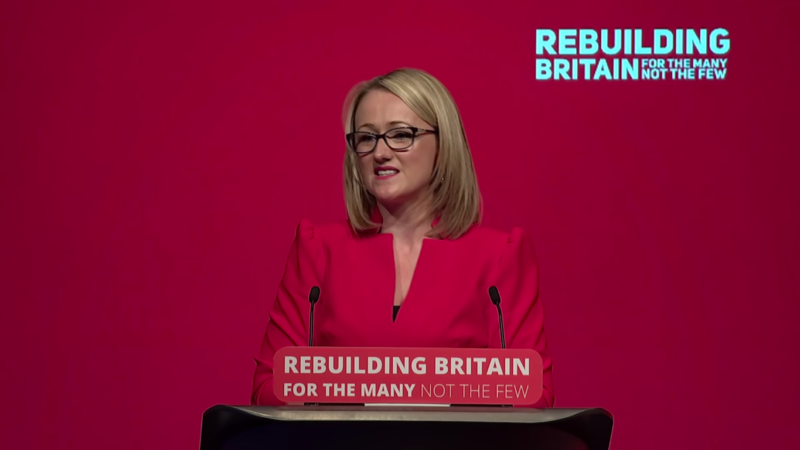
While many focus on the crisis caused by the government’s botched handling of the Brexit negotiations, we should pay close attention to another growing crisis. It’s worth taking a deep breath before reviewing the current state of affairs. Toshiba’s withdrawal from a proposed nuclear plant in Moorside – scheduled to produce 7% of the UK’s electricity – has left a massive hole in the UK’s plans for energy supply, decarbonisation and the economy of West Cumbria. The government’s response? This is “entirely a commercial decision for Toshiba”.
Similar thinking was revealed at a recent select committee hearing on the closure of Rough, a gas storage facility representing 70% of the UK’s gas storage capacity. This has left the UK more exposed to supply shocks and price volatility during times of high demand, as seen during the ‘Beast from the East’. The government’s response is that this was entirely a commercial decision for the operator Centrica.
Can renewable energy fill the gap? Well, consider a recent report by EY, reporting that investment in UK renewables was down 46% in the third quarter compared to 2017 levels. That is particularly worrying given that 2017 levels of investment were 56% down on the year before. The government’s response? Philip Hammond failed to even mention renewable energy in his recent budget.
Incredibly, given the crisis facing the solar industry, the government is now proposing to remove payments for energy exported to the grid from small scale renewables. This will effectively mean households that install solar panels giving energy for free to big energy companies, who then sell it back to us all. The solar industry and green groups argue this could be a killer blow to an already beleaguered industry.
On top of that, we are now faced with a crisis in what’s known as the ‘capacity market’. This is the arrangement through which energy generators are paid above normal market rates to provide backup power in times of high demand. The European courts have just suspended the UK system after concluding it could be illegal.
Make no mistake, the capacity market is badly designed, throwing huge amounts of bill payers’ money to keep old, carbon intense power stations open. But rather than a planned programme for reform, it now faces sudden unravelling, creating more uncertainty.
In fact wherever you look, the picture is one of chaos. Take the repeatedly criticised rollout of smart meters, which has been beset by delays, cost overruns, poor technical implementation and now hard selling as part of a mad rush to meet the government’s deadline, alienating consumers. Then there’s the recent accusations of massive fraud within the government’s £23bn Renewable Heat Incentive, with worrying echoes of the ‘cash for ash’ scandal that brought down the Northern Ireland power sharing agreement.
At the household level, energy debt has surged in the last year by one quarter, with three million homes owing money. One in ten households live in fuel poverty (a higher ratio for those with children), over half of all customers are on poor value tariffs, and tens of thousands of the worst off are self-disconnecting from prepay meters. Energy supply companies, meanwhile, have repeatedly hiked bills in the 18 months since Theresa May promised and failed to introduce a price cap (which is now expected in January 2019).
With so much going so wrong, it would be easy to miss the common thread that runs through all of these related crises. But luckily, Greg Clark, Secretary of State, was on hand last week with a speech that crystallised the problem: his and the government’s belief that “we must wherever possible use market mechanisms”.
Of course, there is a place for private investment driven by competition. But this government’s pursuit of markets at all costs keep leading to the same problems: complex, poorly designed mechanisms open to gaming and profiteering, that deliver poor value for money if they deliver at all; chronic short-termism and boom and bust in a sector that requires long-term planning and coordination to function efficiently; a laissez-faire attitude to areas of strategic importance such as energy security and tackling climate change; and finally, a default response that when systems fail, it is somebody else’s problem.
There are small steps this government could take to correct some of the worst shortcomings in their approach. For example, they should reverse plans to cut the solar export tariff. But ultimately, it is unrealistic to expect the interventions needed to address the big challenges in our energy system from an administration that does not believe in intervening – a government that does not believe in governing.
Only Labour has the courage and vision to deploy the levers of government needed to guarantee a green, secure and affordable energy future. In America, a new generation of socialists are calling for a Green New Deal. Here we’re calling for a Green Jobs Revolution, one that will distribute costs and rewards progressively, deepen economic democracy, and kick start an industrial strategy to rebuild and light up Britain.




More from LabourList
‘I was wrong on the doorstep in Gorton and Denton. I, and all of us, need to listen properly’
‘Why solidarity with Ukraine still matters’
‘Ukraine is Europe’s frontier – and Labour must stay resolute in its defence’